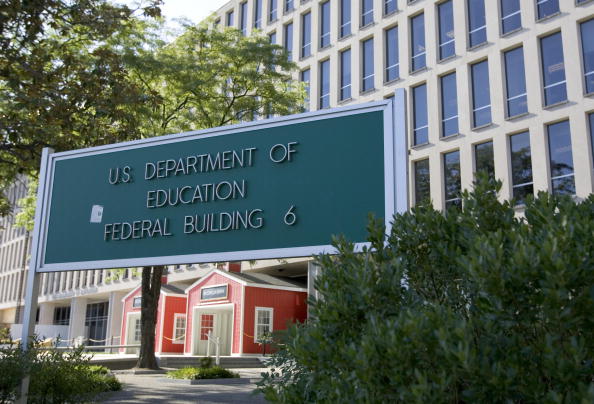
The research branch of the Department of Education has greatly expanded its support for game developers.
Game firms looking to develop learning games are more likely looking at venture capital firms than the federal government for startup funding, but a grant program from the U.S. Department of Education may be exactly where they ought to be looking.
The agency has greatly expanded its support of game developers and during this week’s 2015 Games for Change Summit in New York, N.Y., Ed Metz, program director for the Institute of Education Sciences’ Small Business Innovation Research (SBIR) grant program, outlined just how much the government’s attitude has changed.
“Eight years ago, our program’s portfolio didn’t include a single educational-themed game or project,” Metz said. “Today, about half of those projects are educational games.”
The SBIR provides seed-funding for entrepreneurial developers to research and develop commercially viable education technology products, including games.
Burgeoning educational game developers or companies with fewer than 500 employees can submit ideas to compete for annual awards, which range anywhere from $150,000 to $1 million in seed money, no strings attached.
“The company owns all the IP,” Metz said. “In that sense, it’s the best program ever for a startup. They can use it to fund the critical needs of the company.”
Maybe its a biology game that teaches students the process of photosynthesis, or a robot-building game that gets a girl interested in science. If a three-person development team can get a grant and be successful, they’ll have a critical impact on education, and the economy is strengthened.
— Ed Metz, SBIR grant program manager
It’s a very different position than SBIR held eight or nine years ago. It’s difficult for Metz to pin down the exact reason why — perhaps the proliferation of gaming on mobile devices, infrastructure advances that increase access for students and teachers, and a general increase in cultural acceptance of gaming all play a role — but he said some SBIR grant reviewers are no longer asking why support games.
“Now it’s not a question of whether they’re appropriate, but how we can optimize games for learning and teaching. The cultural has changed,” Metz said.
Metz said the number of educational games proposals “skyrocketed” in 2011, after previous recipients of SBIR grants like Filament Games in Madison, Wis., won the National STEM Video Game Challenge Award for their game You Make Me Sick! (Incidentally, Filament Games is currently hiring in eight positions, including game designers and engineers.)
“Other developers see that and they find out they got $850,000 from a government program that gave them the funding to take 2 years to complete rigorous research that allowed their game to be based in the classroom and have an impact on learning sciences,” said Metz.
As another leading example, Metz points to Washington D.C.-based company Mindset Works, which applied for a fast-track SBIR grant in 2010.
In 2015, nearly half of middle schools throughout the D.C. school district use Mindset Works’ SchoolKit, which includes Brainology, they’re blended-learning program, complete with animation and classroom activities.
“It was transformative,” said Dr. Lisa Blackwell, co-founder and Vice President of Design, Implementation and Evaluation for Mindset Works.
“The SchooKit didn’t exist before the SBIR.”
She said the SBIR fast-track grant her company received helped Mindset Works, founded in 2008 by Blackwell and four other colleagues, complete a Flash version of Brainology that was already in development, but in need of some refinements.
“We were in the marketplace when we received the contract,” Blackwell explains. “Since 2010, we’ve more than quadrupled in size, revenue and number of educational organizations, teachers and administrators we’re working with.”
Blackwell said the funding didn’t necessarily give their program a boost in their ability to afford and apply improved technology.
“It was the method and the ability to establish distribution and create resources that teachers could access through virtual means. Then we were able to use technology as a platform to distribute skills, strategies and techniques to teachers and students,” Blackwell said.
The 2016 SBIR doesn’t have an announced deadline yet, but the Institute of Education Sciences set last year’s application deadline for January 15, 2015.
Metz said he expects a record number of educational game applications this year, and he looks forward to moving the conversation forward from whether U.S. classroom and government agencies are willing to accept educational games, to whether or not his program can actually meet demand.
